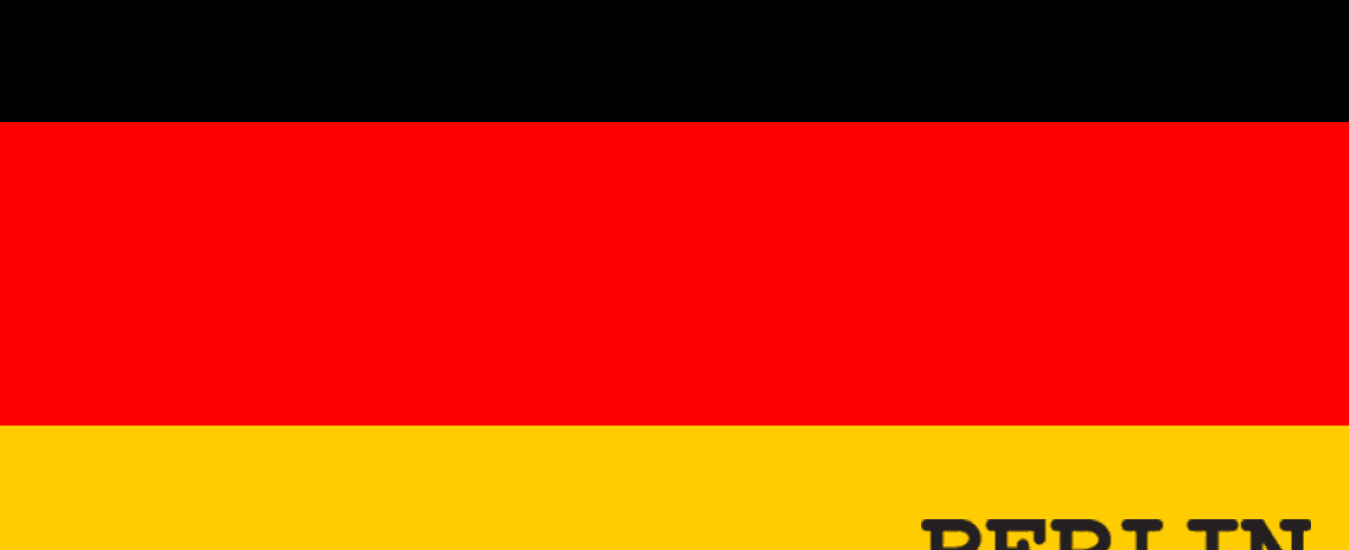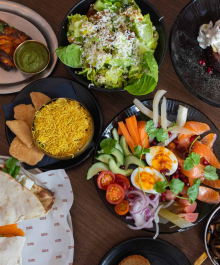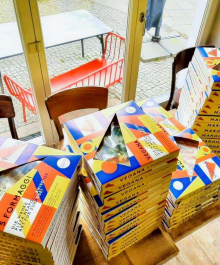

Your 20 Favourite German Words. Don’t look at us, you chose them…
By Andrew Cottrill . June 15, 2016
The German language never fails to provide us with eye-opening, cute and sometimes hilarious words. A while ago we asked our readers to submit some of their favourite ones to us. Well, in the spirit of celebrating the German language a little (plus with the help of Berlin-based online language school Lingoda, we’ve created this little list to hopefully make you fall in love with the language a little more (and maybe better understand our BERLIN LOVES YOU readers).
1. Arschgeweih
Arse antlers. Arschgeweih are those lower-back tattoos that are the sure-fire indication of high moral fibre. See: tramp stamp.
2. Arbeitsunfähigkeitsbescheinigung
When a non-German calls in sick, it’s bunking off. When a German calls in sick, they’re doing their national duty of saving their co-workers from their invisible, infectious germs. If you wish to do this national service for longer than two days, you’ll need an Arbeitsunfähigkeitsbescheinigung. A doctor’s sick note. But don’t worry, they’re easier to obtain than a common cold.
3. Ausgezeichnet!
Excellent, superb, outstanding. Like a well-ventilated room, a Sunday post-brunch stroll and sandals with socks.
4. Kartoffelpuffer
A fried potato pancake. You’ll find them in the supermarket freezer section, but whilst being exactly the same in every way to any other frozen potato thing, these are a dessert and are often served with Apfelmus (apple sauce). Don’t try to put baked beans or ketchup on them or you’ll be deported.
5. Leitungswasser
On those rare occasions when you’re thirsty but don’t want beer, you might want this. Tap water. Order it at the bar and watch your bartender squirm in revulsion at the thought of water without bubbles (or even refuse to serve it to you).
6. Verschlimmbessern
Something’s broken and you try to fix it. But with the best intentions in the world, you end up making it worse than it was before. It’s like trying to reconcile your broken relationship by taking your partner for a romantic dinner at the same restaurant they’d just caught you having an affair the previous week. Or BER Berlin Brandenburg Airport.
7. Feierabend
That moment you finish work for the day, that’s the moment Feierabend starts. Crack open that beer and enjoy it, it’s beer o’clock. Literally, it means ‘celebration evening’ but a Feierabend starts as soon as you clock off for the day, regardless of the time.
8. Sauregurkenzeit
The Germans love their zeiten (times). Throughout the year there’s Spargelzeit (asparagus time), Kürbiszeit (pumpkin time), Pfifferlingszeit (chanterelle mushroom time), Erdbeerzeit (strawberry time)… and all we have to look forward to is the occasional Hammertime.
Sauregurkenzeit is the time of year when pickled gherkins hit the Berlin shelves… but it also coincides with the yearly end-of-summer slowdown or Sommerloch (summer hole) which occurs when everyone is off school or work on vacation and there’s not much happening. For this reason, the word Sauregurkenzeit has come to mean the off-season or dead-season.
9. Eichhörnchen
Eichhörnchen means squirrel (well, actually oak-little-horns) and just as we English speakers tease other nationalities for not being able to pronounce ‘squirrel’, so do the Germans and ‘Eichhörnchen’. Go on, give it a go.
10. Nacktschnecke
This means naked snail. What, you may ask yourselves, is a naked snail? It’s a slug, of course. Interestingly, this works in reverse for toad (Kröte) and tortoise (Schildkröte, shield-toad). In German, you just say what you see.
11. Donaudampfschiffahrtselektrizitätenhauptbetriebswerk-
bauunterbeamtengesellschaft
This is German for ‘hi’. Not really, it means Association for Subordinate Officials of the Head Office Management of the Danube Steamboat Electrical Services. Good luck using that on a night out.
12. Leberkäse
Liver cheese. Ugh. Ughhh. But wait, it’s not a cheese and doesn’t necessarily contain liver… But why the name? It comes from two now-obsolete, totally unrelated words meaning loaf case. Leberkäse is a type of meatloaf often eaten in a bread roll with mustard. See, that makes sense. If you wanted it with cheese, order the Käseleberkäs.
13. Dreikäsehoch
The Germans love words with ‘cheese’ in them. This particularly cute word describes a little nipper, a child no taller than three cheeses high.
14. Hüftgold
People say losing weight is tough, but they overlook the hard work and dedication that goes into piling the pounds on. Hüftgold (literally ‘hip gold’) celebrates those precious fatty deposits.
15. Kummerspeck
Griefbacon. The perfect way to achieve Hüftgold. Go on, eat through the pain.
16. Leidenschaft
This is German for passion. The thing is, leiden also means ‘to suffer’. Leave it to the Germans to make passion a negative thing…
17. Lebensmüde
To be tired of life. Damn, are our readers depressed?
18. Weltschmerz
This means world weariness (literally ‘world ache’)… Berlin burnout alert!
19. Glücklich
Thank god… a positive one. This means happy (or lucky). Why the same word? It shows the age of the word – from a time when to be lucky in life usually meant you should also have happiness. Until the plague came to your town.
20. Gemütlichkeit
Ah, the most German of feelings. Picture it: you’re in your alpine hütte in postcard Bavaria, under a warm blanket besides a roaring fire, lungs still full with that frische Luft, a steaming bockwürst in one hand, a freshly-opened Reinheitsgebot beer in the other. Snug, cosy, perfectly content with your surroundings.
And lastly,
Berlin
Because… BERLIN LOVES YOU.
Well, we hope you’ve learned something about the ever-surprising German language. But, why stop there? Log onto Lingoda now to learn the language properly!
Lingoda’s a language school with one unique twist – you don’t have to leave work early and rush to Alexanderplatz for classes. It’s all online. Live online group and private classes for every level of German student. And they understand people work day jobs, so classes start on the hour, every hour, 24/7. You can work your classes into your own schedule. Plus, you pay (not much to be honest…) for a set number of private and group classes a month which you can take whenever you want. Want to do something Tuesday night? Skip German class that night and go out. Your online teacher will forgive you.
Lingoda also provides a load of online exercises with a wealth of online material to give you stuff to browse and learn/practice with whilst you’re bored at work or university.
With their help, you’ll soon be able to use all these words in real life. Well, maybe not Donaudampfschiffahrtselektrizitätenhauptbetriebswerkbauunterbeamtengesellschaft.
You can book a trial one-on-one class with Lingoda for 99¢ here.
Written in partnership with Lingoda.






